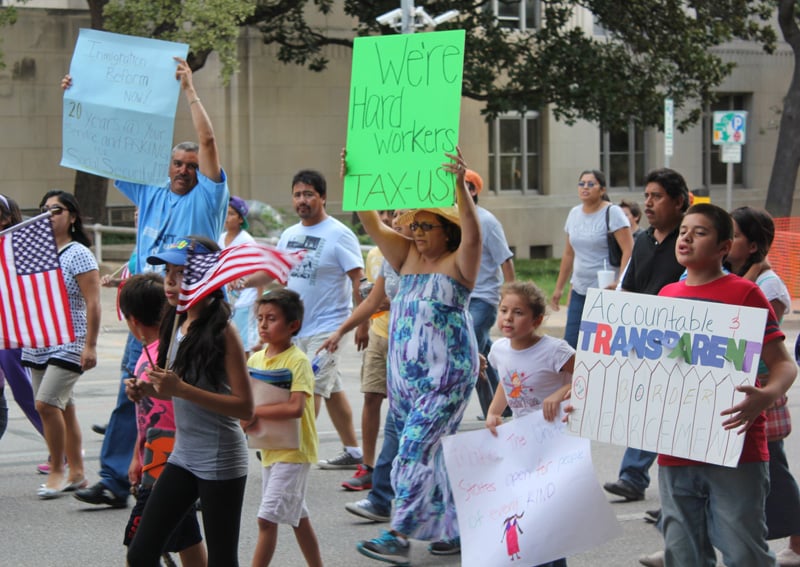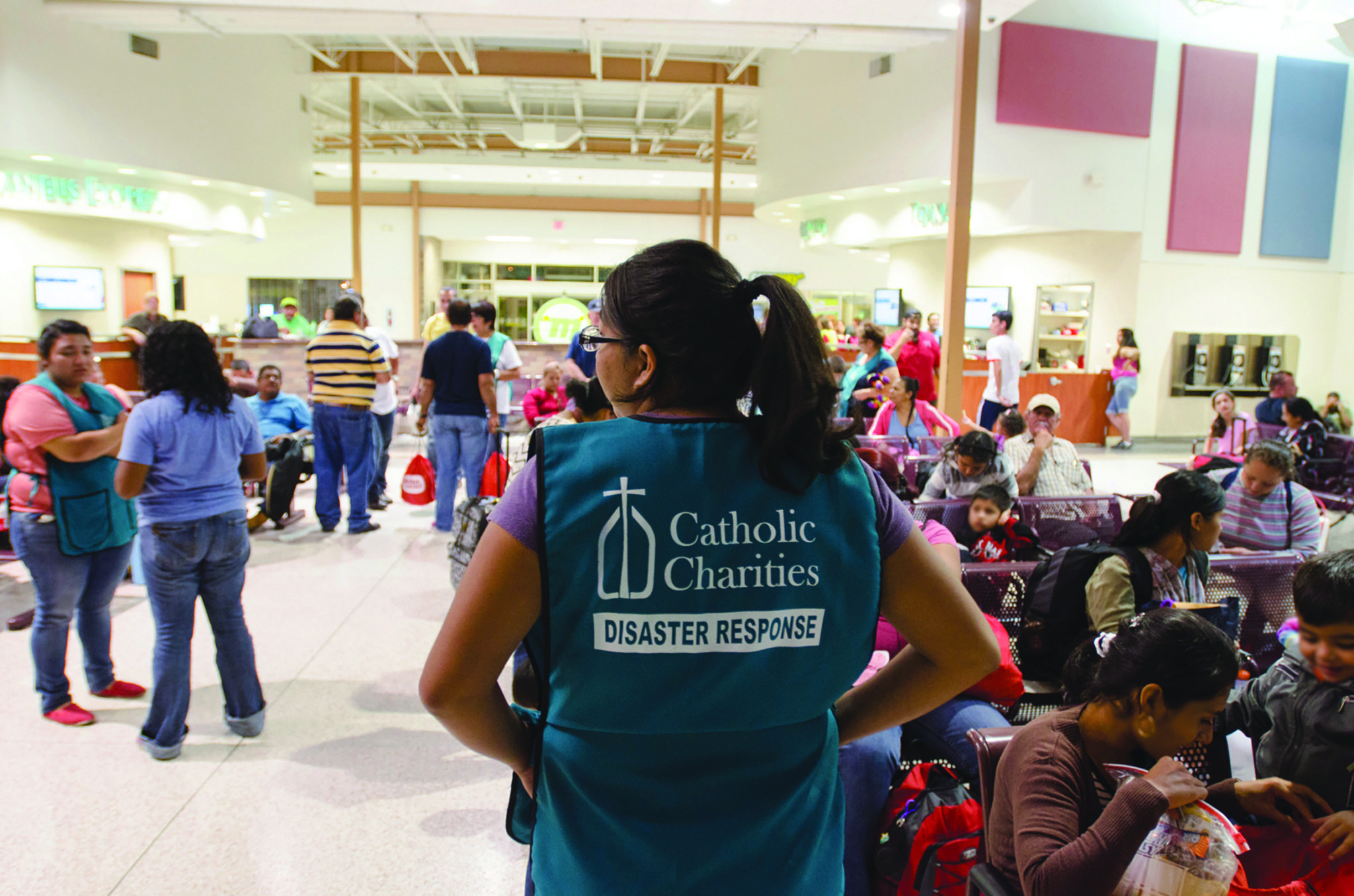
Groups Urge DOJ to Stop Prosecuting Immigrants for Illegal Entry
A national bipartisan movement to reduce the United States’ outsized prison population is gaining momentum, but immigration reform advocates say an important piece is still missing from the reform conversation: Thousands of men and women are being incarcerated every year because they entered the U.S. without documents.
Illegal entry and re-entry — essentially, the crimes of crossing the border without authorization — are now the most-prosecuted federal crimes. Overloaded judges struggle to make time for other cases, including violent crime and financial fraud. Thanks to the surge in illegal entry prosecutions, Latinos now make up the majority of the federal prison population.
On Tuesday, more than 170 organizations representing criminal justice, immigration reform and faith-based groups sent a letter to U.S. Attorney General Loretta Lynch, urging the Department of Justice to end prosecutions for illegal entry and re-entry.
Bob Libal, director of Grassroots Leadership, an Austin immigrant advocacy group, said it’s time for the DOJ to reconsider its overzealous prosecution of undocumented immigrants. “There’s a conversation going on about how to reduce mass incarceration, but at the same time you have leaders talking about mandatory minimums for people coming back into the country for basically petty immigration offenses,” he told the Observer.
Libal said that many people caught at the border are trying to reunite with family members in the United States. “We shouldn’t be throwing immigrants en masse into the prison system,” he said. “We have tens of thousands of people languishing in prison, their only violation being a re-entry offense.”
A broad spectrum of organizations, including the ACLU, the National Lawyers Guild and the Jesuit Conference, signed the letter. Libal said he hopes the move will bring immigrant detention into the broader reform movement around mass incarceration.
“We want to urge the administration to de-prioritize these immigration prosecutions,” Libal said. “If they do, it will have all kinds of positive impact.”


